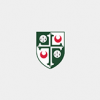
Dr Dennis Barden
Life Fellow
Although Girton is a relatively young college (having celebrated only its 150th anniversary in 2019!), it has produced some impressive mathematicians. Dame Mary Cartwright was the longest-serving Mistress and an eminent mathematician, whose achievements included the foundations of chaos theory. Her portrait near the front of the dining hall is an inspiration for current students. She was one of a trio of distinguished Girton mathematicians whose lives spanned most of the twentieth century, the other two being Lady Jeffreys, well-known for “Methods of Mathematical Physics” which she wrote with her husband, and Olga Taussky-Todd, who went on to become the first female professor at Caltech.
Current Girton mathematicians form a close and supportive group. The size of the group (not too large, not too small) means that the students and Fellows get to know each other well, and the ethos is not of competitiveness but of each student reaching his or her potential. Students come from all backgrounds, all types of school and many different countries (from Eastern Europe to South-East Asia) and friendships are forged which last a lifetime (one group from the 1980s still go on holiday together!). The Cartwright Mathematics Society (named for Dame Mary) was founded just a few years ago and is run entirely by the undergraduates; it arranges events such as talks, visits to other colleges and revision sessions, and helps foster the sense of community.
The Headquarters of Cambridge mathematics, the Centre for Mathematical Sciences, is a modern purpose-built complex, with a full range of facilities. From the third year on, lectures are held there, plus many supervisions at all levels. The Central Core houses the Maths Cafe – the room is usually buzzing with activity as the students drink coffee, discuss mathematics and work at the tables. It is a popular meeting place for students and staff alike. The Maths faculty is top-rated in the country and it is very exciting for the students to be part of an extremely talented group and to be taught by some of the world’s leading researchers. The Mathematical Sciences Library is an interesting circular building on the same site, and it is complemented by the Girton library which has an excellent selection of maths books, covering all undergraduate courses.
Gone are the days when the only career path for most Girton maths graduates was teaching in a school – some still do though, and love it. Other careers include university teaching, financial work in the City, accountancy, actuarial work, software development, starting and running web-based companies, environmental science, economics, medical statistics and mathematical biology. Maths graduates are rarely unemployed; many companies are eager to employ them, even in jobs that are not directly related to maths but where the logical thinking and problem-solving skills acquired by studying maths are invaluable.